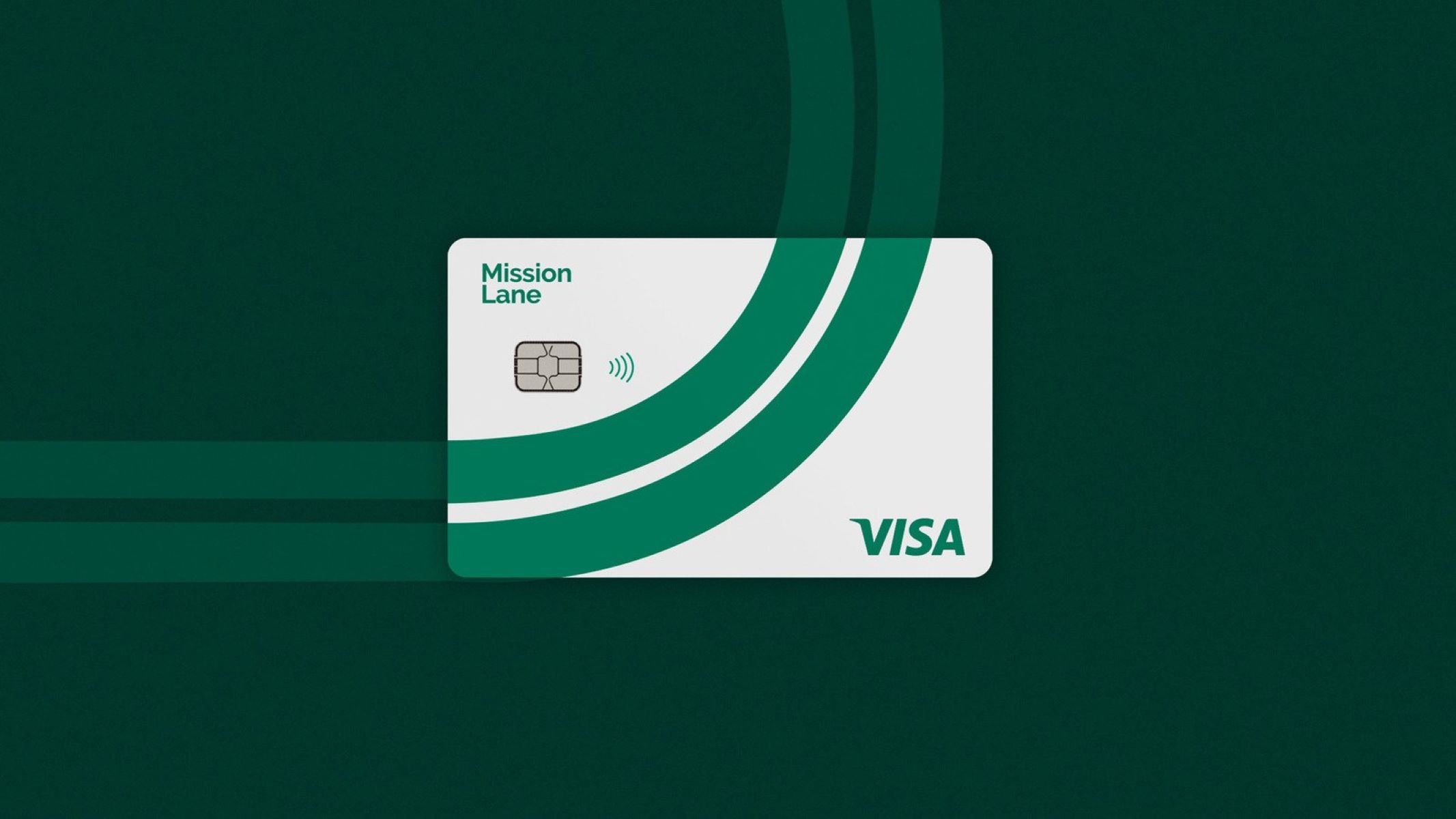

Finance
How Small Businesses Can Use Influencers
Published: November 26, 2023
Discover how small businesses in the finance industry can leverage influencers to boost their online presence and increase brand awareness. Gain valuable insights and strategies to connect with your target audience and drive growth.
(Many of the links in this article redirect to a specific reviewed product. Your purchase of these products through affiliate links helps to generate commission for LiveWell, at no extra cost. Learn more)
Table of Contents
- Introduction
- What is influencer marketing?
- Benefits of influencer marketing for small businesses
- Identifying the right influencers for your business
- Negotiating collaborations with influencers
- Creating impactful influencer campaigns
- Tracking and measuring the success of influencer marketing
- Tips for maximizing the effectiveness of influencer partnerships
- Common mistakes to avoid when working with influencers
- Conclusion
Introduction
Welcome to the world of influencer marketing, where the power of social media and influential individuals collide to create impactful marketing campaigns. In today’s digital age, small businesses have the opportunity to harness the influence of social media personalities to promote their products and services. Influencer marketing has quickly become a popular and effective strategy for reaching and engaging with target audiences.
But what exactly is influencer marketing? In a nutshell, it involves collaborating with individuals who have a large and dedicated following on platforms such as Instagram, YouTube, or TikTok, and leveraging their influence to promote your brand. These influencers can range from fashion bloggers, fitness enthusiasts, beauty gurus, to niche experts in various industries. By partnering with an influencer who aligns with your target market, you can tap into their engaged audience and potentially increase brand awareness, drive traffic to your website, and ultimately boost sales.
So, why should small businesses consider investing in influencer marketing? The benefits are numerous. First and foremost, collaborating with an influencer allows you to tap into their established community of followers who trust their opinions and recommendations. This can result in a higher level of trust and credibility for your brand among your target audience.
Additionally, influencer marketing offers a more personalized and authentic approach to reaching potential customers. Unlike traditional advertising methods, influencers have the ability to create genuine and relatable content that resonates with their audience. This can lead to higher engagement rates and a stronger connection with your brand.
Another advantage of influencer marketing for small businesses is that it offers more cost-effective options compared to traditional forms of advertising. While celebrity endorsements can come with a hefty price tag, working with micro-influencers or nano-influencers (influencers with smaller but highly engaged followings) can be more budget-friendly while still yielding impressive results.
Now that you understand the basics of influencer marketing and its benefits, the next step is to identify the right influencers for your business. In the next section, we will explore the criteria and strategies for finding the perfect match for your brand.
What is influencer marketing?
Influencer marketing is a form of marketing that leverages the popularity and influence of social media personalities to promote products or services. These influencers, who have built a loyal following through their compelling content and engaging personality, can have a significant impact on consumer behavior and purchasing decisions.
At its core, influencer marketing is about creating authentic connections between brands and consumers. Instead of relying solely on traditional advertising methods, such as television commercials or print ads, influencer marketing takes advantage of the power of social media and word-of-mouth recommendations from trusted individuals.
The rise of social media platforms like Instagram, YouTube, TikTok, and Snapchat has given birth to a new breed of celebrities—social media influencers. These influencers have amassed large followings by sharing captivating content that resonates with their audience. They range from lifestyle, fashion, and beauty influencers to experts in specific niches, such as fitness, food, or travel.
The unique appeal of influencer marketing lies in its ability to connect with consumers on a more personal level. Influencers are seen as relatable figures, often seen as friends or trusted advisors by their followers. As a result, when an influencer promotes a product or service, their audience is more likely to pay attention and consider making a purchase.
One of the key elements of influencer marketing is the concept of authenticity. Influencers are known for their genuine and relatable content, which creates a sense of trust with their audience. Unlike traditional forms of advertising, which can feel forced or insincere, influencer marketing feels more organic and genuine. By leveraging the credibility and trust that influencers have already built with their followers, brands can tap into that authenticity and establish a bond with their target audience.
Influencer marketing also offers brands the opportunity to target specific niche markets. Instead of casting a wide net with traditional advertising, brands can partner with influencers who already have a dedicated following within their desired demographic or industry. This allows for a more precise and targeted approach to reaching potential customers who are more likely to be interested in the brand’s products or services.
Overall, influencer marketing is a dynamic and powerful strategy for brands to connect with their target audience. By leveraging the influence and reach of social media personalities, brands can increase brand awareness, drive engagement, and ultimately boost sales in a more authentic and personalized way.
Benefits of influencer marketing for small businesses
Influencer marketing offers a wide range of benefits for small businesses looking to expand their reach and increase brand visibility. Here are some key advantages of incorporating influencer marketing into your marketing strategy:
- Increased brand awareness: Partnering with influencers allows your brand to reach a wider audience and gain exposure to potential customers who may not be aware of your business. Through the influencers’ reach and engagement on social media, you can significantly increase brand visibility and recognition.
- Access to a targeted audience: Influencers have a dedicated following that aligns with specific demographics or interests. This means that by collaborating with the right influencers, you can directly reach your target audience and increase the chances of converting them into customers. It provides a more focused marketing approach compared to traditional advertising methods.
- Boosted credibility and trust: Influencers are seen as trusted figures by their followers. When they share positive experiences and recommendations about your products or services, it can build trust and credibility for your brand. This can be especially valuable for small businesses that are trying to establish themselves in the market or gain the trust of new customers.
- Enhanced engagement: Influencers have cultivated a highly engaged audience through their content. By partnering with them, you can tap into their audience’s active participation and encourage interactions such as likes, comments, and shares. This engagement not only increases brand visibility but also helps in building a community around your brand.
- Creation of authentic content: Influencers are experts in creating compelling and authentic content that resonates with their audience. By collaborating with them, you can leverage their creativity and unique style to showcase your products or services in a more genuine and relatable way. This can enhance the overall perception and image of your brand.
- Cost-effective marketing: Influencer marketing provides a cost-effective alternative to traditional advertising methods, especially for small businesses with limited marketing budgets. Instead of investing in expensive ad placements, working with influencers, particularly micro-influencers, can offer a more affordable way to promote your brand without compromising on reach and impact.
- Potential for viral content: Influencers have the potential to generate viral content that can quickly spread across social media platforms. A well-executed collaboration with an influencer can lead to increased brand exposure and even go viral, reaching a large audience beyond the influencer’s immediate follower base.
Overall, influencer marketing can be a powerful tool for small businesses to strengthen their brand presence, reach a targeted audience, and build trust and credibility. By leveraging the influence and creativity of influencers, small businesses can level the playing field and compete with larger brands in the digital space.
Identifying the right influencers for your business
When it comes to influencer marketing, finding the right influencers to collaborate with is crucial for the success of your campaign. Here are some key steps to help you identify the right influencers for your business:
- Define your target audience: Before searching for influencers, it’s important to have a clear understanding of your target audience. Consider their demographics, interests, and behavior. This will help you narrow down your search and find influencers who have an audience that aligns with your target market.
- Research industry-specific influencers: Look for influencers who are active and influential within your industry or niche. They should have a deep understanding of your industry and be able to create content that resonates with your target audience. Social media platforms and influencer discovery tools can be valuable resources for finding influencers who specialize in your niche.
- Analyze the influencer’s reach and engagement: While follower count is important, it’s equally important to analyze the influencer’s engagement rate. Look for influencers who have a high level of engagement with their audience through likes, comments, and shares. This indicates that their followers are actively interested in their content, making them more likely to pay attention to your brand.
- Consider the influencer’s brand alignment: Look for influencers whose personal brand and values align with your brand. Make sure their content, tone, and aesthetics are in line with your brand image. This will help ensure that the partnership feels natural and authentic, leading to a better connection with the influencer’s audience.
- Assess the quality of the influencer’s content: Take the time to review the influencer’s content and determine if their style and quality meet your standards. Look for influencers who produce high-quality, visually appealing content that aligns with your brand’s aesthetics. This will help ensure that your brand is represented in the best possible light.
- Check their engagement authenticity: Look for influencers who have genuine engagement with their audience. Make sure their followers are real and active, rather than being filled with fake accounts or purchased followers. Look for meaningful interactions in the comments section and observe if the influencer responds to comments from their followers.
- Consider the influencer’s past collaborations: Review the influencer’s previous brand collaborations to see if they have worked with businesses similar to yours. This can give you an idea of their experience and ability to create effective sponsored content. It’s also helpful to see if they have a history of promoting products or services that are in line with your industry.
Remember, finding the right influencers for your business is not just about the number of followers they have, but also about their relevance, authenticity, and ability to create meaningful connections with their audience. Take the time to research and evaluate potential influencers to ensure a successful collaboration that aligns with your brand goals and resonates with your target audience.
Negotiating collaborations with influencers
Once you have identified potential influencers that align with your brand and target audience, the next step is to negotiate a collaboration. Here are some key tips to consider when negotiating collaborations with influencers:
- Establish your goals: Before reaching out to influencers, clearly define your goals for the collaboration. Whether it’s to increase brand awareness, drive sales, or generate user-generated content, having a clear objective will help guide your negotiation process.
- Research the influencer’s past collaborations: Take the time to review the influencer’s previous brand collaborations to understand their pricing, expectations, and the type of content they typically produce. This will give you an idea of what to expect and help you negotiate a fair arrangement.
- Consider what you can offer: Influencers are often inundated with collaboration requests, so it’s important to consider what unique value or incentives you can offer. This can include free products, exclusive discounts for their audience, or even a revenue-sharing agreement. Be prepared to showcase why collaborating with your brand is beneficial for the influencer.
- Determine the scope of the collaboration: Clearly define the scope of the collaboration, including the number of posts or videos, the format of the content, and the duration of the partnership. This will help both parties understand the expectations and deliverables involved.
- Discuss creative freedom: While it’s important to align the content with your brand guidelines, give the influencer creative freedom to showcase your product or service in a way that feels authentic and natural to their audience. This will help ensure a genuine and engaging collaboration that resonates with their followers.
- Negotiate compensation: Influencers may have different pricing structures, so be prepared to negotiate the compensation. Factors that may impact the pricing include the influencer’s reach, engagement, and the level of exclusivity of the partnership. Consider your budget and the potential return on investment when discussing compensation.
- Define deliverables and timelines: Clearly outline the deliverables you expect from the collaboration, such as the number of posts, captions, hashtags, and any specific calls-to-action. Additionally, establish the timelines for content creation, review, and publishing to ensure a smooth working relationship.
- Have a legal agreement: To protect both parties, it’s essential to have a written agreement that outlines the terms and conditions of the collaboration. This can include details about content ownership, usage rights, disclosure of the sponsored partnership, and other relevant clauses.
- Maintain open communication: Throughout the collaboration process, maintain open and transparent communication with the influencer. Address any questions or concerns promptly and provide them with the necessary support and resources to create the best possible content for your brand.
- Measure the success: Establish key performance indicators (KPIs) and track the success of the collaboration. This can include metrics such as engagement rate, click-through rate, conversions, or brand mentions. Analyzing the results will help you evaluate the effectiveness of the partnership and make informed decisions for future collaborations.
Remember, influencer marketing is a collaboration, and building a strong and mutually beneficial relationship with influencers is key to achieving successful outcomes. By negotiating effectively and maintaining open communication, you can create impactful collaborations that drive results for your brand.
Creating impactful influencer campaigns
When it comes to influencer marketing, creating impactful campaigns is essential to ensure that your brand message resonates with the influencer’s audience and achieves your desired goals. Here are some key steps to follow when creating impactful influencer campaigns:
- Set campaign objectives: Clearly define your campaign objectives. Are you aiming to increase brand awareness, drive traffic to your website, generate sales, or boost user-generated content? Having a clear understanding of your goals will help shape the direction of the campaign.
- Choose the right influencers: Select influencers who align with your brand values, target audience, and campaign objectives. Look for those who have a genuine connection with their followers and create content that resonates with your target market.
- Plan your campaign strategy: Develop a comprehensive campaign strategy that outlines the key messages, campaign theme, and desired outcomes. Consider how the influencer will integrate your brand into their content in an authentic and seamless manner.
- Create engaging content: Work closely with the influencers to develop creative and engaging content that aligns with your brand and campaign objectives. Provide clear guidelines and suggestions to ensure that the content incorporates your brand message while maintaining the influencer’s unique style and voice.
- Encourage creativity: Give influencers the freedom to showcase your product or service in a way that feels authentic and natural to their audience. This will help create content that stands out and resonates with their followers, leading to better engagement and brand perception.
- Utilize various content formats: Experiment with different content formats such as Instagram posts, stories, YouTube videos, or live streams. Each format has its own strengths and allows you to showcase your brand from different perspectives, increasing overall campaign reach and engagement.
- Use branded hashtags and mentions: Create branded hashtags and encourage influencers to use them in their posts. This can help generate buzz around your campaign and increase visibility across social media platforms. Additionally, encourage influencers to mention your brand or tag your official account to drive traffic and increase brand awareness.
- Implement call-to-action: Include clear call-to-action in the influencer’s content to direct their audience towards desired actions. Whether it’s visiting your website, making a purchase, or signing up for a newsletter, a strong call-to-action can help drive tangible results from your influencer campaign.
- Engage with the audience: Encourage influencers to engage with their audience through comments, messages, or live Q&A sessions related to the campaign. This fosters a sense of community and enhances the authenticity of the collaboration, further strengthening the connection between your brand and the influencer’s audience.
- Monitor and measure the campaign: Regularly monitor the performance of your influencer campaign using analytics and track the key metrics such as engagement, reach, click-through rates, conversions, and sentiment analysis. Use this data to evaluate the effectiveness of the campaign and make any necessary adjustments for future campaigns.
Creating impactful influencer campaigns requires careful planning, collaboration, and monitoring. By following these steps and working closely with influencers, you can create campaigns that resonate with your target audience, drive engagement, and achieve your desired objectives.
Tracking and measuring the success of influencer marketing
Tracking and measuring the success of your influencer marketing campaigns is crucial for evaluating their effectiveness and optimizing future strategies. Here are some key steps to track and measure the success of your influencer marketing efforts:
- Establish Key Performance Indicators (KPIs): Determine the specific metrics that align with your campaign objectives. Common KPIs include engagement rate, reach, click-through rate, conversions, and brand mentions. Setting clear and measurable KPIs will help you track the success of your influencer marketing campaigns.
- Use UTM parameters: Implement UTM parameters in the links shared by influencers to track the traffic and conversions generated from their posts. This will provide detailed data on the effectiveness of your influencer collaborations and help attribute specific actions to the influencer’s efforts.
- Analyze engagement metrics: Measure the engagement metrics, such as likes, comments, shares, and saves, on the influencer’s posts. A higher engagement rate indicates a stronger connection between the influencer’s audience and your brand, demonstrating the success of the collaboration in capturing their attention and interest.
- Monitor reach and impressions: Analyze the reach and impressions generated by each influencer campaign. This will give you insights into the exposure your brand received and the potential reach of your message to a wider audience beyond the influencer’s immediate follower base.
- Assess website traffic and conversions: Track the traffic driven to your website from the influencer’s posts using tools like Google Analytics. Measure the conversion rate and the number of conversions generated to assess the impact of the influencer marketing campaigns on your sales or lead generation goals.
- Consider sentiment analysis: Use sentiment analysis tools to gauge the overall sentiment and perception of your brand among the audience exposed to the influencer’s content. This qualitative data can provide insights into how well your brand message was received and whether it positively influenced the audience’s perception.
- Compare against benchmarks: Benchmark your campaign performance against industry standards or previous campaigns to gain a comparative understanding of your influencer marketing efforts. This can help you identify areas where you excel or areas that require improvement.
- Collect feedback from influencers: Seek feedback from the influencers themselves on their experience working with your brand and the results they observed. This qualitative feedback can provide valuable insights into what worked well and areas for improvement in your influencer marketing campaigns.
- Engage in social listening: Monitor social media platforms for brand mentions, hashtags, and discussions related to your influencer campaigns. This will give you an indication of the buzz generated and the overall impact of the collaborations on your brand’s online presence and reputation.
- Iterate and optimize: Use the insights gathered from tracking and measuring the success of your influencer campaigns to refine your strategy and optimize future collaborations. Identify what worked and what didn’t, and make data-driven decisions to improve your influencer marketing efforts over time.
Tracking and measuring the success of your influencer marketing campaigns allows you to gauge the return on investment, identify areas for improvement, and optimize your future influencer collaborations. By regularly monitoring and analyzing the data, you can ensure that your influencer marketing initiatives align with your goals and drive impactful results for your business.
Tips for maximizing the effectiveness of influencer partnerships
Collaborating with influencers can be a powerful marketing strategy, but to truly maximize its effectiveness, consider these tips:
- Choose the right influencers: Select influencers whose values, content style, and audience align with your brand. Ensure that their audience demographics match your target market to maximize the potential impact of the partnership.
- Establish clear objectives: Define your goals and objectives for the influencer partnership. This will help both you and the influencer understand the desired outcomes and align your efforts throughout the collaboration.
- Communicate your expectations: Clearly communicate your expectations and guidelines to the influencer. Provide them with a detailed brief that outlines your brand message, key talking points, and any specific campaign requirements.
- Foster authentic content: Encourage influencers to create authentic and relatable content that resonates with their audience. Allow them the creative freedom to showcase your brand in a way that is true to their personal style and voice.
- Build a genuine relationship: Engage with the influencers beyond the collaboration by supporting their content and engaging with their audience. Building a genuine relationship can lead to long-term partnerships and increased trust and loyalty.
- Offer unique incentives: Provide influencers with exclusive incentives to promote your brand, such as special discounts or early access to new products or services. This can generate excitement among their audience and drive higher engagement and conversions.
- Encourage user-generated content: Encourage influencers to encourage their followers to create and share content related to your brand. User-generated content not only boosts engagement but also helps to expand your brand’s reach and credibility.
- Deepen engagement through collaborations: Consider long-term collaborations with influencers, rather than one-off campaigns. Creating a series of content with an influencer allows for a deeper connection with their audience and greater brand exposure over time.
- Leverage multiple platforms: Explore collaborations with influencers across multiple social media platforms to reach a wider audience base. Different platforms have unique features and user demographics, providing opportunities to expand your brand’s reach and engagement.
- Track and measure results: Utilize tracking and analytics tools to measure the effectiveness of your influencer partnerships. This data will help you identify what works and what can be improved, enabling you to refine your influencer marketing strategy for future campaigns.
- Stay updated on industry trends: Keep a pulse on the latest social media and influencer marketing trends. Continuously research and adapt your influencer partnerships to stay relevant and leverage emerging opportunities.
By implementing these tips, you can maximize the effectiveness of your influencer partnerships and create impactful collaborations that resonate with your target audience, increase brand awareness, and drive tangible results for your business.
Common mistakes to avoid when working with influencers
Working with influencers can be a highly effective marketing strategy, but it’s important to navigate the collaboration process carefully to avoid common pitfalls. Here are some key mistakes to avoid when working with influencers:
- Not conducting thorough research: One of the biggest mistakes is not conducting thorough research on influencers before collaborating with them. It’s essential to review their content, engagement rates, audience demographics, and past collaborations to ensure alignment with your brand and goals.
- Overlooking authenticity: Authenticity is a key factor in influencer marketing. Avoid working with influencers who have a history of promoting products or services that do not align with their audience or appear inauthentic. It’s crucial to maintain the genuine connection influencers have with their followers.
- Ignoring engagement rates: Focusing solely on the number of followers an influencer has can be misleading. Poor engagement rates indicate a lack of genuine connection with the audience. Look for influencers who have a high level of engagement through likes, comments, shares, and saves.
- Being too controlling: While it’s important to maintain brand guidelines, avoid being too controlling over the content creation process. Influencers know their audience best and have their own unique style. Give them creative freedom to ensure the content resonates with their followers. Collaboration should be a two-way process.
- Not setting clear expectations: Communication is key. Clearly define your expectations and campaign requirements from the beginning. Provide influencers with a detailed brief to ensure they fully understand your brand message, key talking points, and any specific guidelines or deliverables.
- Overlooking legal and disclosure requirements: Ensure compliance with advertising regulations and disclosure guidelines. Influencers must disclose any sponsored content to maintain transparency. Familiarize yourself with the legal requirements in the relevant jurisdictions to avoid potential penalties or damage to your brand’s reputation.
- Ignoring long-term relationships: Building long-term relationships with influencers can offer numerous benefits. Too often, brands focus solely on short-term campaigns instead of nurturing lasting partnerships. Long-term collaborations help foster brand loyalty, deeper audience connections, and ongoing brand promotion.
- Expecting immediate results: Influencer marketing requires time to build trust and generate results. Avoid expecting immediate or overnight success. Influencer campaigns are part of a holistic marketing strategy, and it takes time to see the full impact on brand awareness, engagement, and conversions.
- Neglecting post-campaign engagement: After the campaign has ended, don’t forget about the influencer and their audience. Continue engaging with the influencer by sharing their content, responding to comments, and maintaining the relationship. Post-campaign engagement helps sustain the connection and potential for future collaborations.
- Not tracking and measuring results: Measuring the success of influencer campaigns is crucial for understanding their impact and making informed decisions. Neglecting to track and measure key performance indicators (KPIs) can lead to missed opportunities to optimize future campaigns and improve ROI.
Avoiding these common mistakes will help you navigate influencer collaborations more effectively. By investing time in research, maintaining authenticity, setting clear expectations, and fostering long-term relationships, you can reap the maximum benefits from influencer marketing and achieve your desired objectives.
Conclusion
Influencer marketing has emerged as a powerful strategy for small businesses to reach and engage with their target audience. By leveraging the popularity and influence of social media personalities, small businesses can increase brand awareness, boost credibility, and drive conversions.
Through this article, we have explored the various aspects of influencer marketing, from understanding its definition to identifying the right influencers for your business and negotiating collaborations. We have also delved into the importance of creating impactful influencer campaigns, tracking and measuring their success, and avoiding common mistakes along the way.
When implementing influencer marketing, it is essential to choose influencers who align with your brand values and have a genuine connection with their audience. Clear communication, authentic content, and the establishment of long-term relationships are key to maximizing the effectiveness of influencer partnerships. Tracking and measuring the results of your campaigns will provide insights into their success and guide future marketing strategies.
Remember, influencer marketing is a dynamic and evolving field. Staying updated with current trends, engaging with influencers, and continuous evaluation of your strategies will help you stay ahead of the curve and make the most out of your influencer marketing initiatives.
By incorporating influencer marketing into your overall digital marketing strategy, small businesses can enhance their online presence, establish trust with their target audience, and ultimately drive business growth. So, start exploring the world of influencer marketing and unlock the potential for your small business to thrive in the digital landscape.














